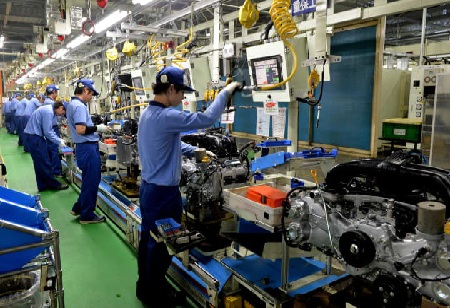In the post-pandemic phase, a spurt in Japanese investment in India is on the anvil, and the spotlight is on south India as a manufacturing hub, said Nakayama Yukihide, Director General, Japan External Trade Organization.
Speaking at a symposium on ‘India and Japan in Free and Open Indo-Pacific’, organised by The Consulate General of Japan, Chennai and the Indo-Japan Chamber of Commerce and Industry, Mr. Yukihide said that post the pandemic, major Japanese companies were thinking of a new logistics model, exporting cars manufactured in India to other countries in Europe and Africa.
“Post-pandemic, companies are considering south India as an export hub. Nissan Magnite is exported to 15 countries,” Mr. Yukihide said.Stressing the need for focusing on private industrial parks in Tamil Nadu, he said such parks were convenient for Japanese companies.
On the future prospects of Japanese companies in India, Mr. Yukihide said companies were expected to focus on digital transformation and related sectors.
Japanese investment is expected in healthy food menu planning based on Japanese knowledge, diabetes prevention food, medical check-up system and unique medical equipment, compact testing equipment, food packaging, energy-related enterprises, manufacturing execution system and EV battery-related technology.
N. Ravi, Chairman of Kasturi and Sons Limited, said the economic relationship continued to be the centrepiece of Indo-Japan ties. “Traditional friendship and courtesy have enabled both countries to navigate any differences that have arisen - both strategic and perception issues,” he said. Sanjaya Baru, distinguished fellow, United Services Institution of India, said that it was necessary for India and Japan to take the relationship to a wider and mutually beneficial bilateral framework. “The synergy in the relationship derives from the demographic, economic and technological aspects,” he said.
